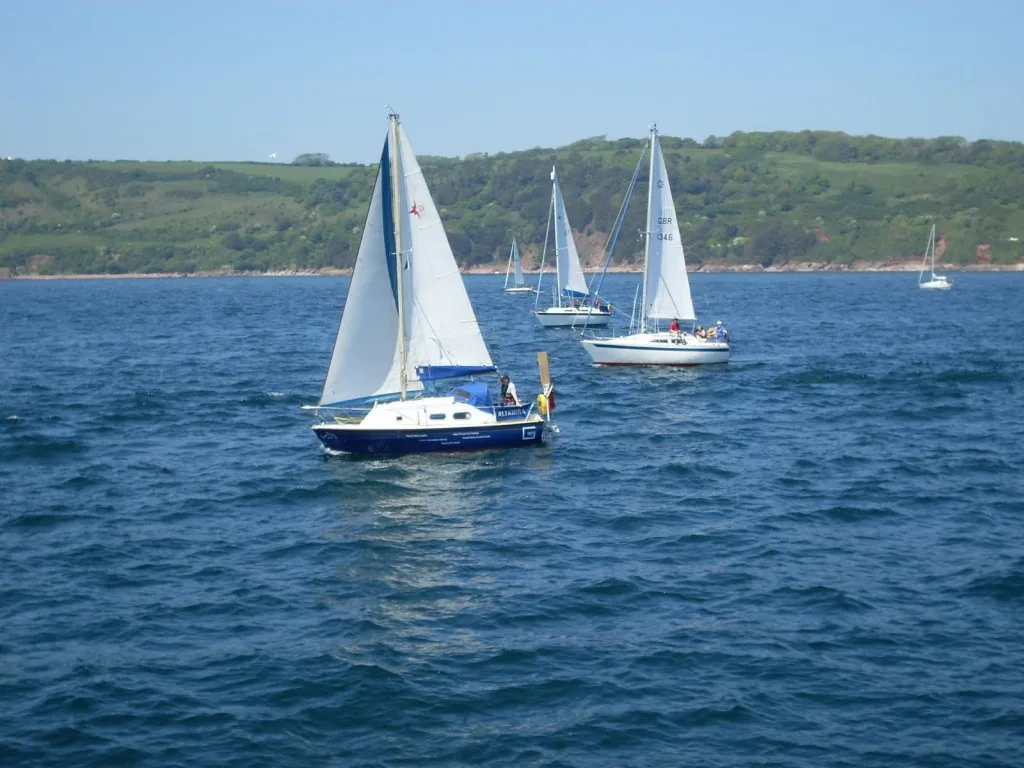
The Jester Challenge is a single-handed trans-atlantic event for boats 20-30 ft from Plymouth to Newport, Rhode Island. One of the aims of The Jester Challenge is to conduct a modern experiment in old-fashioned self-reliance, self-sufficiency and personal responsibility and, in doing so, The Jester Challenge has attracted a quorum of, in the main, hugely experienced, small-yacht, ocean voyagers. In practice, another aim is to replace the Jester Class that once formed the smallest class in the OSTAR (to give that race the most recognisable of its many titles) but which has now been removed from the entry list. This year’s Jester Challenge is a celebrates the 50th anniversary of Blondie Hasler’s original Observer Single-handed Trans-Atlantic Race. There are over 20 entries from as far afield as Russia, Australia, Switzerland and Kenya. Currently this is the only single-handed trans-Atlantic event programmed to commemorate the beginning of modern single and short-handed ocean voyaging.
The Jester Challenge fills a gap – satisfies a desire – and exists on the understanding that everyone has the right to sail across an ocean single-handed and ‘in company’ without submitting themselves to rules – other than those governing common sense and good seamanship – and extortionate entrance fees that, to a Corinthian, is money better spent on the vessel. The Jester Challenge has no organising committee while no one has a duty of care to the competitors other than the skippers to themselves, their dependants and other seafarers.
No skipper is likely to enlist on-shore navigational and meteorological help and there is no time limit. Without inspections the Jester Challengers will sail against each other on an individual basis and – in a parody of Blondie’s views – are not expected to give a fig about level playing fields but are expected to ‘behave like gentlemen’ over numbers on board and the use of an engine. The skippers will be happy once again, I trust, simply to reach their destination side safely, take their own finishing times and then compare rigs, routes, equipment, clothing and diets.
In the early days some suggested we insisted on oil lamps, towed logs and sextants but while the Jester Challenge is for small vessels, some of whom may well have been built in pre-GPS days, there is nothing Luddite about it. Satellite navigation will continue to predominate as will, un-surprisingly, wind-vanes. With no regulations, Jester Challengers can carry – or not carry – what safety equipment they like, based on personal experience: we rely on the maturity of the skippers.
The Jester Challenge – a continuing experiment in old-fashioned self-reliance, self-sufficiency and personal responsibility – encourages oceanic passages in small boats sailed by independent yachtsmen, exercising their individual freedoms at sea. It replaces no existing race, remains complementary to the OSTAR and is increasing in popularity so fast that even those remaining, sceptical, yachting journalists have had to take note – probably much against their wishes – that the Jester Challenge in its two guises ( Newport and the Azores ) is here to stay.
The begrudgers might note, too, that the Jester Challenge continues to fill a gap demanded by traditional and proper seamen who would otherwise be denied the opportunity to pit their wits against both the oceans and other like-minded seafarers.
Entries
Altamira
Amadeus
Argus
Astro
Belgean
China Blue
Ella Trout III
Fason
Fluffy
Gerda
Glayva
Grettal
Jasabe
Jester
Just Right
Lizzie-G
Marta
Mingming
Red Admiral
Sixpence
The Grand
Triple Venture
Vaquero